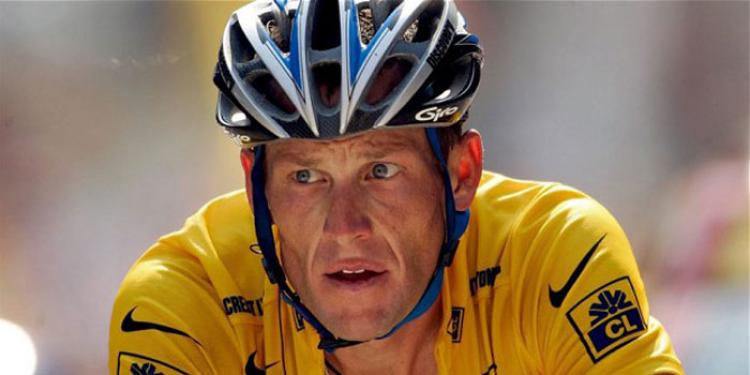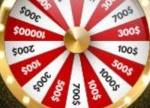Famous Cheat Of The Week: Lance Armstrong
Posted: March 3, 2016
Updated: May 25, 2017

There is one name that has become synonymous with being a famous cheat, and that’s Lance Armstrong. The cyclist who was a hero and inspiration to millions, who had won the Tour de France numerous times, and who had achieved it all through doping, did not so much fall from grace as plummet to the ground as years of cheating and lies all came home to roost.
Born in Texas, Armstrong was a gifted athlete even from early childhood, training with the US Olympic Cycling Developmental Team before leaving high school and competing in the Junior World Championships in Moscow in 1989, the same year he joined the US National Cycling Team. A couple of years after that he was US National Amateur Champion; no small achievement, although if he was gambling news headlines after Barcelona would be of his victory, he was to be disappointed.
Lance Armstrong
- 7 Tour de France wins
- 1 Oprah interview
- Banned for life
In 1992, as much of the world was focused on the Dream Team winning the most inevitable gold medal in Olympic history, Armstrong rode for his country and finished 14th. This inauspicious showing didn’t stop him instantly turning professional, only to promptly finish last in his first pro race. His career then upswings as he takes numerous titles including US Pro Champion and World Champion in 1993, the same year he wins his first stage in the Tour de France.
Two years later he wins another stage and actually finishes Le Tour for the first time, but then in 1996 he comes a rather disappointing 12th in the Atlanta Olympics. Then came the news that proved not even the famous cheat illness as he was diagnosed with testicular cancer that has spread throughout much of his body. With one of his testicles removed and two lesions taken from his brain in separate surgery he is pronounced by doctors to be “Cancer Free” in December of that year.
Survivor Of Testicular Cancer
Armstrong then set up a Foundation for Cancer research and set off back into the world of cycling. It is two years before it all clicks but then, riding with US Postal Team, Lance Armstrong wins the Tour de France. It is a story like no other. To beat both the ravages of cancer and one of the most arduous road races on the planet? Amazing. The media frenzy was immense, staying as frantic when the following year he wins again and then gets a Bronze in the Sydney Olympics.
A hero, a survivor, a winner. The US loved him and if you liked to bet on sports in the US then you backed him. In 2000 he published a book entitled “It’s Not About The Bike; My Journey Back To Life” (which makes you vomit now you know he’s a famous cheat) which sold like hot cakes. However, allegations of doping in cycling dogged the sport over the next few years as he continued to win Le Tour year after year, and a 21 month investigation into drug use on the 2000 Tour found “no evidence”.
These were the years cycling lived in denial, the sport as a whole unwilling to see what we now, with the benefit of hindsight, can all regard so easily. Allegations in a book by David Walsh in 2004 were vehemently denied by Armstrong who won his sixth consecutive Tour de France that year announcing that he would be retiring after the next Tour de France, in the following Spring. He wins, of course, and does indeed retire, and even a report by the International Cycling Union clears him of any drug use.
Winner Of 7 Tour de France Titles
It might have ended there had he not returned to cycling. For a few years he struggled in the sport and Floyd Landis, former teammate, accused him of doping, which again Armstrong denied, but his career was coming to an end anyway so he retired less gracefully, perhaps comfortable that the Justice Department’s probe into allegations was being closed without any charges filed. That summer of 2012 however the USADA (US Anti-Doping Agency) filed charges against him.
After a short, futile legal battle the truth ebbed out, the ICU stripped him of his 7 Tour de France victories and banned him for life. The USADA report into this famous cheat made it clear he was at the center of a massive doping programme in cycling, and Nike withdrew their sponsorship instantly, even faster than the IOC took away his bronze medal. By January 2013 there was nowhere to run and Lance Armstrong came clean in a now infamous interview with Oprah Winfrey where he admitted all.
The famous cheat that is Lance Armstrong was held up as a symbol of all that was wrong with doping in sport and rightly so, it opened Cycling’s eyes to the problem in their midst, but damaged the sport’s reputation so badly that perhaps it will never recover. The Tour de France is still dogged with doping allegations each and every year now and fewer people are willing to wager upon it at bet365. However if you’re in the US gambling laws of common sense would keep Armstrong somewhere far away and quiet, think again.

Admits All But Sour Grapes Remain
Lance Armstrong spoke to college students at the University of Colorado on March 1st 2016 and, having been invited to speak by Professor Roger Pielke Jr, told his audience he felt the US Anti-Doping Agency (the ones that had shown him up for the famous cheat he is) were “one of the most ineffective and inefficient organizations in the world” and claimed that Travis Tygart (USADA’s CEO) only picked on him because they needed a headline grabbing story for their own budget security.
It must be quite galling being told you’re useless by Lance Armstrong, a famous cheat you caught, but what must make it really irritating is the fact that he’s probably right. Recent revelations from the world of Athletics have demonstrated that anti-doping efforts in the sport have been woeful at best, and collusionist at worst. The USADA has to take some responsibility for that; however, that doesn’t mean they have to take critical comments from a famous cheat like Lance Armstrong, our cheat of the week.












